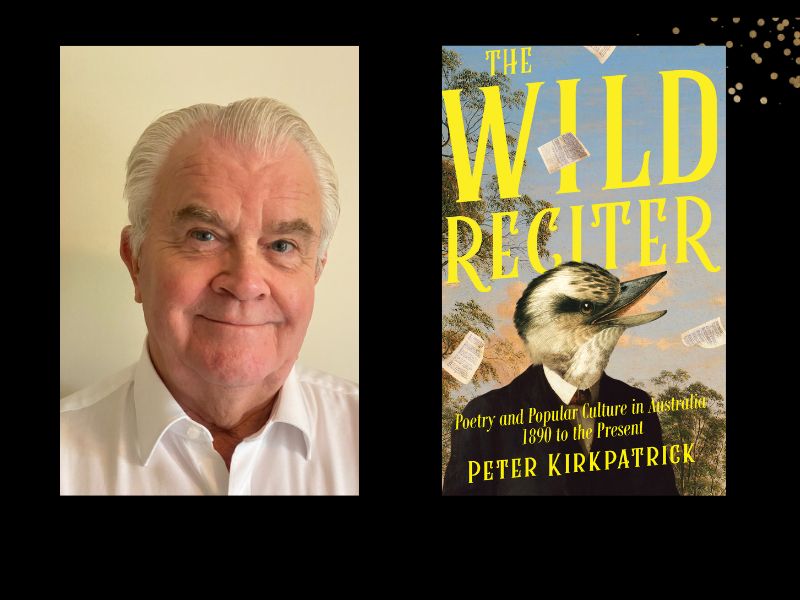The Wild Reciter is an exploration of how poetry has been “created, communicated and consumed within every day life in this country from 1890 until the present day” with Peter Kirkpatrick taking an historical route that lifts the words off the page and chases them down familiar and dustier corners of the past before measuring their worth in contemporary times.
Kirkpatrick wears his learning lightly. This is an accessible book, not weighed down by esoteric pretensions or academic posturings. He begins after all – and surprisingly – with Taylor Swift. Can her lyrics be considered poetry?
Despite all the progress and inroads to the contrary, poetry on the whole, still carries page-bound, elite connotations, but this book breaks open this conceit and explores its intermingling with popular culture.
The Wild Reciter starts with the advent of poetry as a recitative mode of communication in the late 19th century, at the same time as elocution and public speaking were considered an aspirational aspect of social mobility. It also surveys the Australian bush ballad and settler identity, with typical suspects like Banjo Paterson and C J Dennis covered before moving onto the influence of commercial music on poetry and then radio and how it attracted a new audience.
Kirkpatrick also dovetails into a number of essays about specific poets, like Clive James – who, despite his many other talents, considered poetry as his first love. Then there’s Dorothy Porter and her foray into crime fiction poetry. ‘Big Sexy Risk’ tracks how she managed to bleed high and low lit in her cross-genre work and created a near impossibility: poetry that was actually popular with readers, instead of, as Kirkpatrick quotes as her saying, “a dramatic cure for insomnia”.
There are incursions – or rather excursions – into performance and slam poetry and instapoetry: ‘Off the Page’, before concluding with a number of bestselling poetry titles in Australia in 2023, including Evelyn Araluen’s Dropbear. The author even weighs in about our upcoming Poet Laureate position. His provocation is to wonder whether musicians such as Paul Kelly, Nick Cave, Sia, Courtney Barnett and The Kid LAROI should be considered for this inaugural role as their words are “far more more popular than any contemporary page-base poet’s, and what’s more, carried on the voices of multitudes”.
It would have been good to have a chapter on contemporary diverse poets. Kirkpatrick acknowledges this to be so: that poetry is taken up more by Indigenous, PoC, queer and generally writers that are outliers from established literary circles, but there is no deep dive or case studies. It’s a missed opportunity. If there is to be chapter on John Law’s questionable verses, surely there should be some space set aside for a roll call of some of the more exciting Australian poets that ply their craft today, people like Maxine Beneba Clarke, Grace Yee, Gavin Yuan Gao, Jazz Money and Eileen Chong – to name but five.
Read: Book review: The Position of Spoons, Deborah Levy
Nonetheless Kirkpatrick – a poet himself – is particularly good at cultural history as he feels the pulse of poetry over the ages, from musical halls and vaudeville to Instagram. It may no longer be recited in schools and halls and widely published in newspapers, but poetry is still breathing and thriving – if you know where to look.
The Wild Reciter, Peter Kirkpatrick
Publisher: Melbourne University Press
ISBN: 9780522880298
Format: Paperback
Pages: 256 pages
Publication: 3 December 2024
RRP: $34.99





